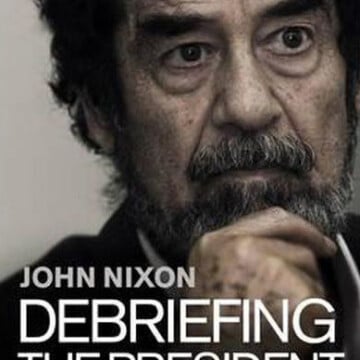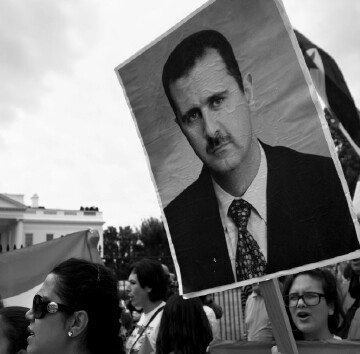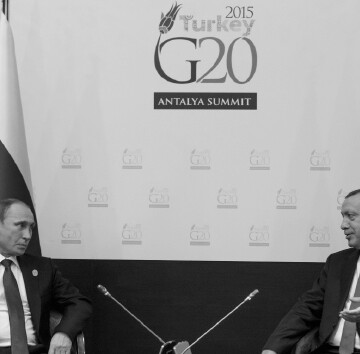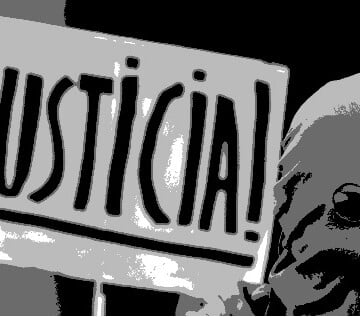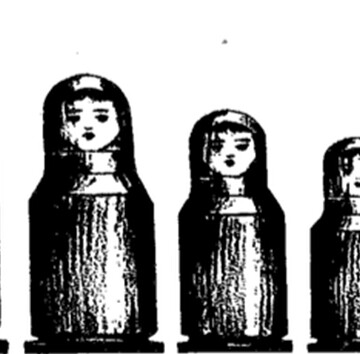Picture this: A president, working partly through a political appointee at CIA headquarters, presses the intelligence community to come up with the “right” intelligence that this president needs to justify his actions. The president has singled out a particular foreign leader for demonization, has convinced himself that this leader is the embodiment of evil, and...
Author: Denis Petrov (Denis Petrov)
The Trump Taps: The Surveillance State in Action
President Donald Trump has a habit of commenting (or tweeting) on topics that “trigger” globalism’s minions in the main stream media. In knee jerk fashion, the MSM will throw a hissy fit over a Trumpian remark, claiming the president is making baseless claims, that he “cites no evidence” (a habit they should be familiar with)...
Forget Flynn: Trump is the Target
The resignation of General Michael Flynn as President Donald Trump’s National Security Advisor is just the beginning. Trump is the real target. Trump is hated in Washington at all levels, including the Republican Party leadership, which cannot wait to backstab him, as well as the federal bureaucracy, the intelligence agencies and foreign policy establishment, the...
The Globalists go for Broke: The Russian E-mail Hacking Story
The Democrats’ hissy fit over the Trump election victory continues, with the usual suspects piling on with claims that the Kremlin hacked the Democratic National Committee and the Clinton campaign’s e-mails in order to help Trump get elected. Obama’s deputy national security advisor, Ben Rhodes, upped the ante by claiming that Putin personally directed the...
“Dangerous Games”: Russia-U.S. Tensions Escalate
In October, Yevgeny Kiselyov, Moscow’s TV propaganda hitman in chief, attacked U.S. policy over Syria, warning his audience that American “impudence” could take on what he called “nuclear dimensions.” Russian warships were on their way to the Syrian coast, Kiselyov noted, to counter potential U.S. air strikes against the Syrian military. He pointedly reminded his...
Putin, Planes, and Position
Russian President Vladimir Putin was furious following the late-November destruction of a Russian war plane by Turkish fighter jets over Syrian airspace. The Russians had been bombing “terrorist” positions inside war-torn Syria since September. Less than two weeks before the incident, Putin thought he had reached agreement with his Turkish counterpart, Recip Tayyip Erdogan, on...
The Paris Terrorist Attacks: Eurocrats in Denial
In the wake of the bloody terrorist attacks in Paris, French President Francois Hollande has asked for extended emergency powers and has promised an intensified assault on Islamic State in Syria. Hollande has further called on the UN Security Council to adopt a resolution on combating terrorism as a basis for forming a “unified” multi-national...
Come Home, America
Washington and Brussels were surprised by the Kremlin’s strong reaction to the ousting of pro-Russian Ukrainian President Viktor Yanukovych in February of last year. They shouldn’t have been. Yanukovych was forced out of office after he backed away from signing a Ukraine-European Union Association Agreement, an agreement Moscow viewed as a threat to its economic...
Abolishing America
June was a depressing month for genuine conservatives. Apart from the Supremes putting their stamp of approval on ObamaCare, the horrifying murders of nine black churchgoers in Charleston, South Carolina, unleashed a jihad against the Confederate Battle Flag (Beltway “conservatives” piled on in support of the jihadists), while a majority of the robed Politburo found...
Twenty Years After the Fall, Part 2
Moscow, so the film title went, does not believe in tears, and stories of massacres by criminal gangs who control major enterprises, contract killings over business and political disputes, and savagely beat or kill journalists who don’t recognize the limits of Russian press freedom still pop up in today’s “middle class” Russia, where this sort...
Twenty Years After the Fall, Part I
“The awful thing is that beauty is mysterious as well as terrible. God and the devil are fighting there and the battlefield is the heart of man.” —Fyodor Dostoyevsky, The Brothers Karamazov Winter came early in the year after the Fall. All the people’s hopes and dreams and expansive aspirations had not yet faded,...
Now a Russian Spring?
The Kremlin has reacted to continuing protests over election fraud and what the protestors see as the illegitimacy of the regime by toughening the law on mass meetings and is beginning to wield the newly adopted law against protestors and the protest leaders. The protests have been centered in Moscow and do not by themselves...
Reset—or Russian Spring?
The Russian powers that be (vlast) had been nervously preparing for the December 4 elections to the Duma (the lower house of Russia’s parliament) for months. A command decision was made not to overuse “administrative resources” in amassing a victory for the “party of power,” United Russia (Yedinaya Rossiya, ER), and its unofficial leader, former...
Putin Reset
Russian Prime Minister Vladimir Putin will return to the Kremlin as president in 2012, ending speculation on the fate of the “national leader” and of the “tandem” he had formed with current President Dmitri Medvedev. Medvedev nominated Putin on September 24 during the congress of the ruling United Russia party, dashing the hopes of reformers...
Puzzling Comments
Vladimir Putin startled observers in Russia and the United States with his June 18 claim that, following the September 11 terrorist attacks and before the U.S. invasion of Iraq, Russian intelligence had passed along information indicating that Iraq was planning terrorist attacks against American targets. U.S. officials appeared puzzled by Putin’s comments, which prompted a...
A Desirable Transit Point
The Republic of Georgia’s desirability as an oil and natural-gas transit point has made her a pawn in a game that involves Washington, Moscow, Caspian Sea oil, and the fate of Iraq. And this game is, in turn, part of the great game going on in Central Asia. Since September 11, 2001, American policymakers have...
Spring Trip
Spencer Abraham’s August trip to Moscow may have solved one of the chief puzzles of Russian politics as well as underscored Washington’s intent to cultivate Moscow as a possible alternative to OPEC as an energy supplier. Energy Secretary Abraham promised his Russian counterpart, Igor Yusufov, that the United States would help fund Russian geological research...
A Strained Performance
Vladimir Putin’s strained performance at a June 25 Kremlin press conference—timed to precede his departure for a G-8 summit in Canada—has led many Russian observers to reassess the popular image of the Russian president as a “strong hand” who had whipped the oligarchs into line and restored order in the long-suffering “Land of the Firebird.”...
Threatened Security
Russian security is threatened in the east as well as in the south and west (through NATO expansion). In an interview in Moscow’s elite-oriented Nezavisimaya Gazeta on April 25, Prof. Vilya Gelbras of Moscow State University’s Asia and Africa Institute called Russia’s East Siberia and Far East regions the “weakest link” in the “system” of...
Putin’s Gamble: Playing the Terrorist Card
When Russian President Vladimir Putin called President Bush shortly after the September 11 terrorist attacks to express his solidarity, pundits East and West took this as a sign of what one American columnist called the coming “earthquake” in U.S.-Russia relations. Putin was aiming to shift his policy focus westward, away from his previous “Eurasianist” effort...
Moscow on Georgia
Vladimir Putin, at the end of February, was expected by pundits East and West to react sharply to the news of Washington’s plan to send military advisors to Georgia, aiding Tbilisi in its battle with Taliban-connected Chechen insurgents. The insurgents have long used Georgia’s Pankisi gorge as a rest camp and base for continuing their...
Minister of “Emergency Situations”
Vladimir Putin’s minister of “emergency situations,” Sergei Shoygu, has been particularly busy this winter, since the usual unpleasantness associated with Russia’s harsh climate has been made worse by the country’s crumbling infrastructure. In October and November, entire villages in Yakutia were swept away as huge ice flows jammed the rivers, causing massive flooding, while January...
Russian Relations
Russian relations, in mid-November, were potentially on the verge of a sea-change, at the conclusion of two days of smiles, handshakes, bear hugs, and the usual feel-goodisms we have come to expect of “summit meetings,” especially from American presidents. (President George W. Bush, for instance, insisted that “the more I get to see” Russian President...
“Power Ministers”
Vladimir Putin adopted his usual serious demeanor during an October 8 meeting with his “power ministers,” the men who head Russian defense and security agencies. The ex-KGB operative grimly noted that the U.S. losses in the September 11 terrorist attacks were “colossal,” more than twice that of (official) Russian casualties in the Chechen war. Putin...
A Mini-Summit
The Bush-Putin mini-summit was considered by most Moscow pundits to be a success, with the two more or less agreeing to disagree about ABM, nuclear- missile defense (NMD), and NATO expansion—for now, anyway. President Bush did not pressure Vladimir Putin about Chechnya, but one point that he ever-so-gently raised did irk the Little Colonel, according...
The Zhukov-Sintez Affair
Aleksandr Zhukov’s April 7 arrest in Sardinia was played up by the Italian DIA (an anti-Mafia investigative unit) as having eliminated an important arms-trafficking channel to the war-torn Balkans. The most intriguing aspect of the story, however, involves NATO, the struggle between Russia and the West for influence in the former Soviet republics, and the...
A Front Man
Vladimir Putin’s one-year anniversary as president of Russia was marked by a Soviet-style celebration. “We are back to pretending again,” my Russian friend commented as we watched the stage-managed antics of several thousand young people, all of them wearing T-shirts bearing the likeness of Vladimir Putin, converging on Vasilevsky Spusk (adjacent to the Kremlin) on...
In a Tizzy
Igor Ivanov, Russia’s foreign minister, is usually calm, cool, and collected, but he looked nervous during his March 22 press conference. Ivanov, known among Kremlin siloviky (members of the defense/security apparatus) as something of a wimp, adopted an uncustomary frown and set about lambasting Washington’s recent “unfriendly acts,” especially the March 21 expulsion of six...
Moldovan Communists
The Moldovan Communists won 71 of 101 seats in the February 25 parliamentary elections, to the chagrin of expansionist-minded NATOcrats. With an absolute majority in the parliament—which elects the country’s president—pro-Russian elements in Moldova are likely to have one of their own as the country’s chief executive. Moldovan Communist leader Vladimir Voronin announced that he...
Global Responsibilities
George W. Bush is already under pressure not to “forget our global responsibilities.” The usual suspects have taken their cue from a January 3 Washington Times article by the paper’s military correspondent. Bill Gertz, who is notorious for obtaining and publishing classified information. Gertz, citing a Defense Intelligence Agency report from last summer, claimed that...
When Will It Snow Again?
It’s late September in Russia, and Muscovites are already placing wagers on when the first snow will come. The weather has simply been too good to be true; the sun has been shining and the temperatures mild, which, to the Russian mind at least, is a bad sign. The Russians have never trusted good fortune...
Moldova’s Partition
Moldova’s Partition may be imminent. While the U.S. Embassy in Moscow denied that American spooks and the Organization for Security and Cooperation in Europe (OSCE) intend to divide that tiny country, the denial itself was enough to convince most Russian and Moldovan/Rumanian patriots that the plan is probably already under way. The State Department was...
Long Arm of the Law
Vladimir Gusinsky, the Russian media magnate, has escaped the long arm of the law. The Russian General Prosecutor’s Office dropped charges of illegal privatization of state enterprises against the Kremlin’s chief nemesis, rescinding the freeze on his property and lifting a ban on foreign travel. Gusinsky promptly headed for his home in Spain. His NTV...
Arrest of Media Magnate
Vladimir Putin’s war on the Russian oligarchs may have begun with the arrest of media magnate Vladimir Gusinsky in June, or so many Western observers hoped. Although Gusinsky was later released (after pledging to remain in Russia during the course of an embezzlement investigation against him), few in or out of Russia doubt that the...
Chechen Boyeviki
The Chechen Boyeviki (“warriors”) are widening the war with Russia, dashing any hopes the Kremlin had of containing the conflict. On May 10, a group of 30 to 40 boyeviki practically wiped out an Internal Troops (MVD) convoy (killing 22 of 26 men) in the neighboring Ingush republic, embarrassing Moscow and sparking a war of...
Victory for Putin
Vladimir Putin’s presidential election victory on March 26 was hailed by businessmen both East and West as a new beginning for economic reform in Russia. One German executive praised what he called Putin’s “open, friendly attitude” to investors, while others longed for Putin to become a Russian Pinochet, a strongman who would use an “iron...
The Chechen War Far From Over
The Chechen War, as the Russian leadership discovered in early March, is far from over. On the night of March 2, a convoy of nine trucks, carrying about 100 Internal Ministry special forces troops from Grozny to the strategically important crossroads village of Pervomayskava, was ambushed by an estimated 40 Chechen boyevikiy (“fighters” or “warriors”)....
It’s Big Push
The Russian Army began its big push to take the Chechen capital, Grozny, on the day after Christmas, directing artillery and air power at concentrations of Chechen fighters near the center of “Dzhokhar.” (The rebels have renamed the city in honor of the first president of independent “Ichkeriya,” Dzhokhar Dudayev.) Thousands of civilians remain, cowering...
“New Russia”
Boris Yeltsin appeared on the Russian state-run television networks on December 31, 1999, with an unexpected—by ordinary Russians, at least—announcement: “It is time for new faces,” said the man who is most responsible for creating the “new Russia.” “I am resigning,” croaked the dipsomaniac political boss, renowned for his mastery of elite political intrigues and...
The First Victim of Any War
Truth, the saying goes, is the first victim of any war, but as NATO’s “action” in the Balkans has demonstrated, truth is under even greater attack in the “information age.” Today, history is not written by the victors once the smoke has cleared, but constantly evolves; each day’s truth is revealed by CNN, the ubiquitous...
A Preferred Successor
Vladimir Putin’s performance as Russian premier had, by the first of November, won him high approval. The ex-KGB professional, publicly tapped by Boris Yeltsin as his preferred successor, has begun to show the political acumen that attracted the attention of Yeltsin and his “family,” the presidential entourage, who are very worried about the anti-family coalition...
Semi-Safe for Buisness
Aleksandr Lebed, governor of the vast Krasnoyarsk region of Siberia, shrugged off rumors circulating in late September that an ailing Boris Yeltsin would appoint the populist “combat general” as premier and then resign, leaving Lebed as acting president. The Krasnoyarsk governor claimed that the time may come when he will be “needed” to “clean up”...
Fighting Abated
The fighting in Dagestan was abating as of late August. Russian firepower had slowed the Chechen-backed Islamic militants, led by an international corps of Islamists, including Chechen “field commander” (read: “warlord”) Shamil Basayevaud the Jordanian professional militant known only as “Khattab.” They had seized 20 towns and villages in the mountainous region of western Dagestan,...
Spirited Away
The Lenin mummy, by the time Chronicles readers see this, may already have been spirited from its Red Square pyramid, and the Communist Party of Russia (CPRF) may have been banned. In mid-July, rumors of such a scenario were circulating among the various pundits, crooks, politicos, cab drivers, and assorted hangers-on who usually pass leaks...
Questionable Motives
Boris Yeltsin, so the conventional wisdom goes, is an impulsive Slavic peasant whose motives are as inscrutable as the enigma that is Russia. Some, probably most, observers also think Yeltsin is crazy. Not crazy like the holy fools of old Russia or the smug suits who make NATO policy. No, Yeltsin is simply considered senile...
At It Again
Boris Yeltsin has been at it again, sacking Russian Premier Yevgeni Primakov and his entire cabinet, pushing the country to the edge of the political abyss. The phlegmatic Primakov, who resembles Jabba the Hut of Star Wars fame, had opened an investigation into the machinations of the “oligarchs,” the gangsters-cum-businessmen who have dominated Russia in...
Lebed in Siberia
“The situation in Krasnoyarsk,” opined Communist Party (CPRF) boss Gennadi Zyuganov, “is reminiscent of Germany in the 1930’s.” Fascism, claimed the national Bolshevik boss, who should know a thing or two about the subject, is threatening Russia, incubating in a Siberian womb. He was not alone in making such dubious charges. In fact, in the...
Rasputins at Home and Abroad
Before his trip to Rome in February, Boris Yeltsin promised everyone who would listen that he would personally invite the Pope to visit Russia. Yeltsin frequently rattled on in front of reporters, like a football player still sprinting after he is out of bounds. For example, he claimed that the youngster Clinton was pushing the...
